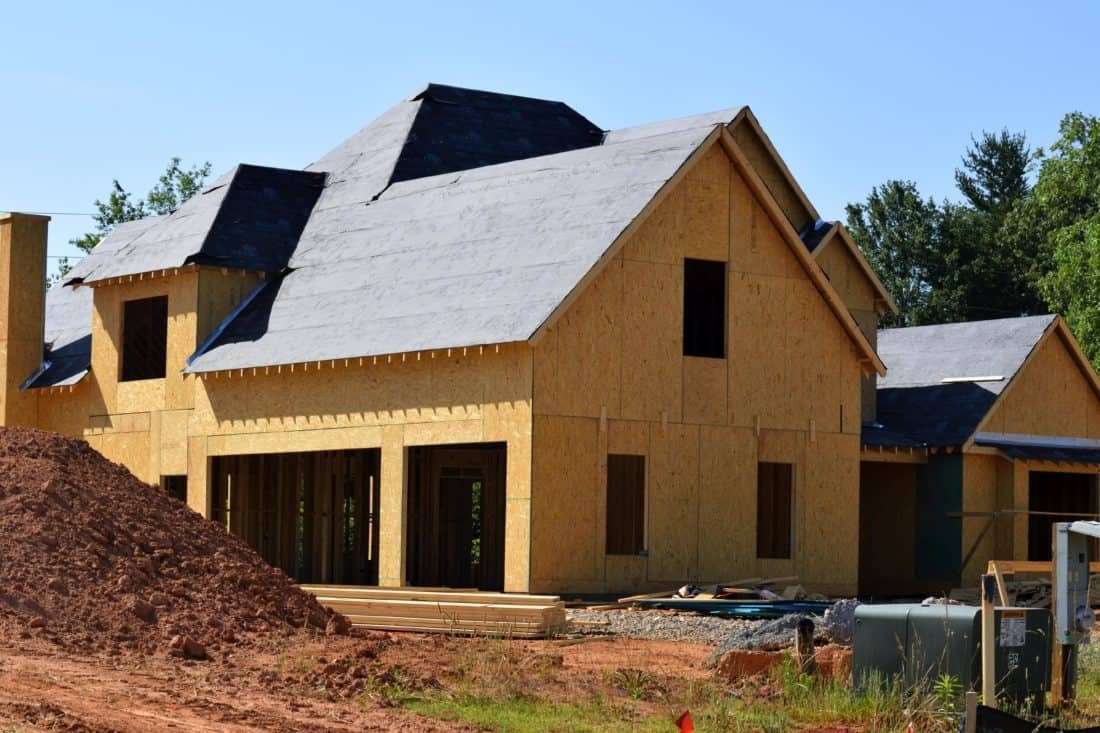Table of Contents Show
Embarking on a home improvement project is rewarding, but it can also be hugely stressful particularly if you haven’t anticipated potential hurdles to overcome or formed a detailed plan.

Home improvement projects are inherently disruptive to your daily life because you can never get away from them.
You will be living among the mess of an unfinished project for days, weeks, or even months, which can quickly cause problems if you aren’t prepared to adjust or allow for a temporary dip in your living conditions.
To help you execute a home improvement project successfully, it is important to have a thorough understanding of the various stages you will encounter, how to deal with them, and what common problems you can expect to come up against along the way. This is how to manage a home improvement project from beginning to end:
Start By Sketching Out Your Plans
The first step in any successful home improvement project is the planning stage. You won’t know how to reach the end of a project if you don’t know what the finished project looks like, so research your chosen project carefully before embarking on it.
If you want to build a conservatory onto your house, for example, then you will need to study conservatory design closely and decide upon a specific design that works for you.
Not only do you want to find the design which suits your tastes the best, but it is important to research prices, how well different designs fit into the overall aesthetic of your house and surrounding area, overcome any planning issues, and whether the interior gives you enough space to serve its intended purpose.
Naturally, this stage is complex and requires you to consider several different factors, so take your time. A mistake at the planning stage can spell disaster further up the road.
Read Also:
Decide Whether You Will Need Outside Help for Your Project
There is no one size fits with home improvement projects. They come in various shapes and sizes and require varying levels of budget and skill level to complete successfully.
Part of the joy of home improvement is getting stuck in, learning new skills, and being proud of your own hard work. This is particularly the case with more manageable projects such as redecorating a room or hanging a door – but can become trickier if you are faced with a more labor-intensive project.
At this stage, you must decide whether you can complete the project yourself or hire specialists to help. There is no shame in opting for the latter because you probably aren’t qualified for many jobs such as rewiring sockets, knocking through a wall, or building an extension – all of which require professional assistance.
Set a Precise Budget and Allow for Unexpected Costs
Once you have a clear idea of what your project is and whether you will need to hire a professional team, you need to set a precise budget.
While it sounds boring (especially for smaller projects), creating a budget is vitally important. Costs can quickly spiral out of control, particularly if you are hit with delays, unexpected challenges or a more substantial project than you were originally anticipating.
This is often the case for independently managed remodels and DIY home improvement projects. It’s simply impossible to foresee everything that can happen in a project as big as a renovation. If you’re taking matters into your own hands, expect to spend more than you initially planned. Make room for the unexpected.
For example, if it turns out that you will need to do welding work, you might find it necessary to invest in a heavy-duty welding curtain or barrier to get the job done.
It’s unforeseen but required expenses like this that often pile up and interrupt the project midway due to budget shortages.
There is no shortage of house extension projects which end up bankrupting the homeowners due to a woefully optimistic budget and hidden hurdles, so plan for the worst up front.
If the costs are beyond your reach, don’t risk financial problems by starting anyway – it is rarely worth the hassle. Focus instead on a more manageable project in the short term.
Have a Rough Timeline for Project Completion?
Another key detail you need to keep on top of is the rough project timeline. Knowing when a project should realistically be completed is crucial for ascertaining how well it is progressing.
This is especially important if the project is affecting your daily life. If you are ripping out your kitchen and replacing it, you are going to be severely disrupted until it is completed.
You should consult a professional who can give you a rough completion time and measure it against similar projects other people have completed. Naturally, many projects run over – which is not a problem as long as you anticipate these delays up front and put a plan in place to allow for them.
Keep a Close Eye on Progress – Without Micromanaging
If you are managing a team of contractors, then it is important to stay abreast with their daily progress. This will help you work out how long the project is likely to take, whether there are any budgetary concerns to be aware of, and whether there is anything you can do to help them complete the project faster.
Keeping on top of daily progress will also ensure that the project is progressing in the direction you want it to. Often, contractors end up going in a separate direction to the one you originally wanted either because you did not have a clear enough plan, or because they have ignored your ideas in favor of their own.
Either way, it is your property and you are in charge, so don’t hesitate to point out any deviations to the original plan if necessary.
However, you should remember to balance this project management with a level of trust. If you have hired professionals to complete the work for you, then they will have far more experience with home improvement projects than you, and their judgment is worth respecting.
If they think there is a better way to execute a task, then you should be open to their point of view. Micromanaging every detail can slow progress and lead to a confused and haphazard project, so remember to take your ego out of the equation and trust your team to do a high-quality job.
Be Prepared for the Unexpected
Home improvement projects rarely go completely to plan, so be prepared to adapt to unexpected challenges, alter your plans or kill your darlings.
Perhaps an element of your project is simply unfeasible or is wildly over budget. Letting go of these elements in favor of the whole project is key if you are to complete it successfully.









